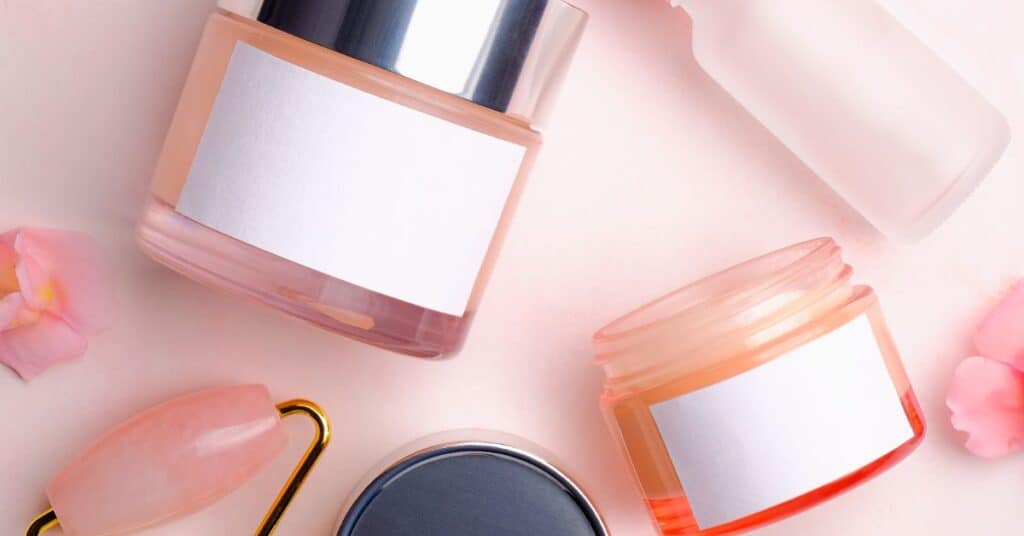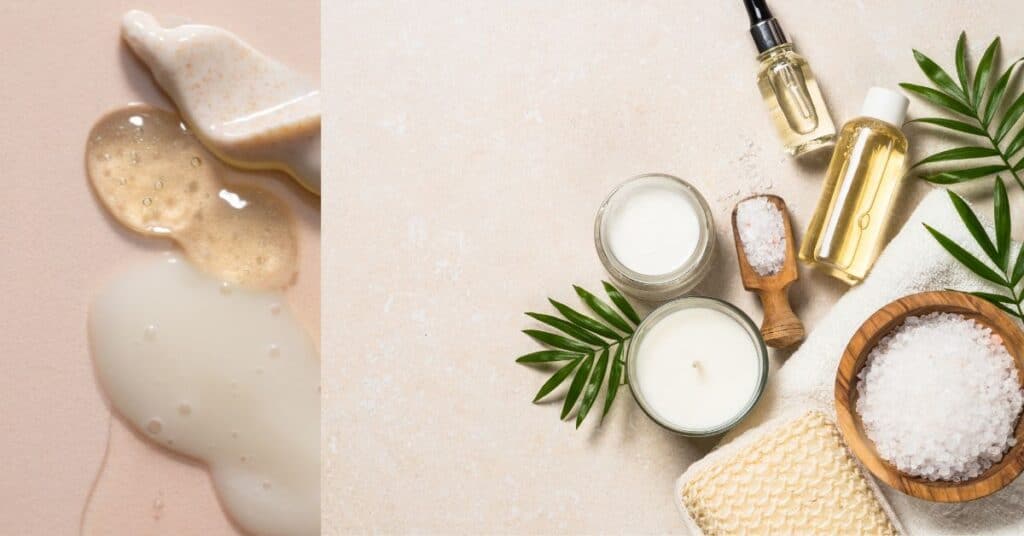Table of Contents
- Can Salicylic Acid skincare Cause acne
- How can I prevent cystic acne from skincare
- How to treat cystic acne
- What are the Skincare Routines for Cystic Acne: Best Practices
- What are the general skin care tips for cystic acne
- Final thought
Would you want to know if skincare causes cystic acne? Based on my experience, I would say yes. Some makeup and skin and hair care products contain oil or other ingredients that can cause acne breakouts.
If you continue to use them, you may continue to see blemishes. What to do instead: Use only makeup, sunscreen, skin, and hair-care products that are labeled “non-comedogenic” or “won’t clog pores.
While most pimples are surface-level and can be taken care of with the right cleansers or over-the-counter topicals, that’s not always the case. For some, acne is a larger issue with deeper skin roots.
This is called cystic acne, and it’s not as easy to get rid of as a typical whitehead. But that is not all; however, as you read further, I will educate you more on the subject matter.
Now, let’s get started.
Can Salicylic Acid skincare Cause acne
Salicylic acid is one ingredient that may cause temporary acne/. Known as “skin purging,” worsening acne is a short-term reaction to ingredients that speed up cell turnover.
Salicylic acid helps your body quickly get rid of dead skin cells. As a result, those dead skin cells, dirt, and oils appear on the surface of your skin, which clogs your pores and causes acne.
However, You can use salicylic acid daily or a few days per week.
Salicylic acid, available in creams, gels, lotions, pads, and more, is one of the most likely culprits of skin purging. Salicylic acid helps clear acne by reducing swelling and unclogging the buildup of your pores.
You may need to apply a low dose of salicylic a few times a week if your skin purges at the start of treatment.
You can slowly build up to using the product daily as your skin adjusts to the salicylic acid. Consult a dermatologist about how to use salicylic acid to treat your skin.
How can I prevent cystic acne from skincare
You can lower your risk of getting acne by taking these steps:
Use a mild foaming facial cleanser, lukewarm water, and your fingers (not a washcloth or sponge) to wash your face after you wake up, before bed, and after exercising or sweating.
Apply oil-free moisturizer if you feel dry.
Use non-comedogenic (water-based) makeup and facial products.
Don’t sleep in makeup.
Keep your hands away from your face during the day.
Don’t pick at or pop pimples or scabs.
Wash your hair regularly and keep hair (which can be oily) away from your face.
Occasionally, oily environments, such as working at a fast food restaurant, can contribute to acne flares.
Diets high in simple sugars and dairy, also called a high glycemic index diet, may contribute to flares.
How to treat cystic acne
Standard acne treatments come in the form of creams, cleansers, and gels that are available at your local drugstore.
Since cystic acne is rooted deeper in the skin, you should start by seeing a dermatologist for treatment.
Both dermatologists recommend seeing a professional as soon as possible to reduce the risk of scarring and the worsening of the acne
one of the first things your doctor will do with you is reset your skincare routine, especially if they recommend you use retinoids.
Patients can use benzoyl peroxide products as a wash or leave-on product because they are anti-inflammatory and antibacterial and will help the retinoid work better for their skin.
Of course, you must follow up with moisturizer and sunscreen because retinol can leave your skin more sensitive to the sun.
“If you use toners, sometimes it can over dry out the skin, and when the skin is dried out, it reflexively produces more oil to protect itself because it feels that it’s dry, which can exacerbate acne,” he said.
Salicylic acid and glycolic acid are other helpful ingredients he mentioned that can be found in washes or leave-on products. How to layer a skincare
What are the Skincare Routines for Cystic Acne: Best Practices
A consistent and gentle skincare routine can make a significant difference in managing cystic acne. Here’s a simple yet effective regimen:
Cleanser: Start with a gentle, non-foaming cleanser to remove impurities without stripping your skin.
Toner: Use a toner with soothing ingredients like witch hazel or chamomile to calm inflammation.
Serum: Incorporate a niacinamide or hyaluronic acid serum to maintain hydration and strengthen the skin barrier.
Moisturizer: Choose an oil-free, non-comedogenic moisturizer to hydrate your skin without clogging pores.
Spot Treatment: Apply a targeted treatment with benzoyl peroxide or salicylic acid directly on cysts to reduce their size and inflammation.
Sunscreen: Finish your morning routine with a lightweight, broad-spectrum sunscreen to protect your skin from UV damage.
Night Treatment: Using a retinoid product promotes cell turnover and prevents clogged pores at night. If prescribed by a dermatologist, follow their instructions.
What are the general skin care tips for cystic acne
Taking care of your skin is the best way to help prevent cystic acne.
Aim to
Wash your face once a day in the evening. Use a cleanser that removes excess dirt and oil but isn’t excessively harsh or drying.
Scrubs can irritate existing inflammatory acne and make it worse. Find a selection of gentle facial cleansers here.
Avoid picking at your skin. Even picking less severe forms of acne can lead to cystic buildup.
Select makeup products that are labeled “non-comedogenic” and “oil-free.” These are less likely to clog your pores. Here’s a selection of oil-free makeup to try.
Never go to bed with makeup on.
Wear sunscreen every day. This will help prevent sunburn from acne medications that may sensitize you to sun exposure and skin cancer. Purchase an oil-free sunscreen to avoid clogging pores.
Some of the following lifestyle changes can also impact your overall skin health and prevent cystic acne from forming.
- Try to find ways to alleviate unnecessary stress in your life. Stress is linked to acne breakouts.
- Avoid foods that have high glycemic levels. These include white bread, pasta, rice, and sugary treats.
- Wash your face and body after working out to remove oil and bacteria
Final thought
Now that we have established that skincare causes cystic acne, It can be challenging, but you can manage it effectively with the right approach and treatments.
If you’re struggling with cystic acne and need personalized advice or treatments, book an appointment with me at Kim Gallo Esthetics.
Skincare treatments target your skin concerns and help you achieve clearer, healthier skin.
Remember, you’re not alone in this journey. With the right knowledge and support, you can take control of your skin and feel confident in your appearance.


